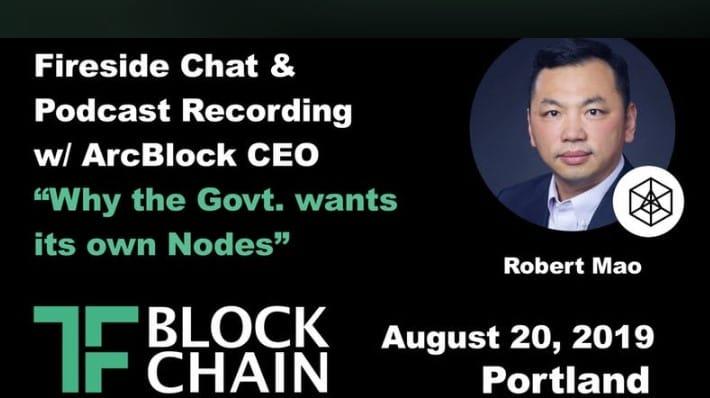ArcBlock Discusses - Why the Government Wants Its Own Blockchain Nodes
2019-08-13
CEO and founder, Robert Mao, will join TF Blockchain for a fireside chat and podcast discussing why the government wants to run it's own blockchain nodes
On August 20, Robert Mao, CEO of ArcBlock, will participate in TF Blockchain's Fireside Chat and Podcast in Portland, OR.
As Blockchain and Cryptocurrency continues to be scrutinized by government officials, it also is becoming accepted and supported. The SEC recently announced it will begin running its own nodes. We will be discussing why this is improtant for overall adoption and what this means for the industry as a whole.
Recent News
Earlier in the month, the United States Securities and Exchanges Commission (SEC) annouced that they are planning to run several cryptocurrency nodes - bitcoin and an ethereum specifically, as well as adding “as many as possible of the following blockchains: Bitcoin Cash, Stellar, Zcash, EOS, NEO, and XRP Ledger" in the near future. This announcement genereated a lof of interest from the blockchain industry as everyone tried to figure out if this was a positive of negative event.
As of now, the SEC hasn't provided any concrete reasons as to why they need to run their own node save for stating it is “to support its efforts to monitor risk, improve compliance, and inform Commission policy with respect to digital assets.” They specifically state “the subscription shall source all blockchain data from hosted nodes, rather than providing this data as a secondary source (e.g., via blockchain explorers.” With this effort, communities and others noticed ArcBlock's name listed as an interested party and confirmed that ArcBlock did indeed participate in the Request for Proposal process.
In the fireside chat, TF Blockchain will ask Robert about that, other industry trends that ArcBlock and seeing, and things they are doing to help their blockchain-related customers build and launch successful DApps and token ecosystems.
Register Now
Anyone can register for the event on Eventbrite, or watch the videos online following the event.


